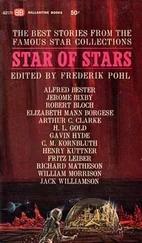The Mermaid, an unhappy Manatee cow that was depicted on the posters as a voluptuous blonde with a fish’s tail, combing her hair at a hand-glass and singing melodiously, but that looked in fact like a sea-elephant with breasts, fell out of her tank of salt water and bellowed her last at the station-master’s feet. The Biggest Rat in the World—a capybara, or water-pig—ran away on its long legs and settled down in a nearby kitchen garden, the owner of which, a maiden lady who was afraid of mice, went out of her mind. One of a team of midget acrobats did, indeed, break his leg— The Daily Flash ran a big picture of his wife, thirty inches high, applying first aid. A spavined giraffe sustained injuries from broken glass, and a tiger, too old and broken-spirited to care, had to be carried back to its cage by six volunteers, led by the local policeman who directed operations with a pitchfork. Thus, Lord Lovejoy sent a Memo: Unfire Raymond and Spray ; and Bohemund Raymond was back in the office within a week, drunker than ever. . . .
. . . Although everyone in Fleet Street had been laughing over that story for years, now Morris found no pleasure in it; there was grief in his heart. He said to me, “Let’s get out of here, Gerald, and I’ll tell you how I made a hissing and a mockery of poor old Bohemund Raymond. God knows, it was all in fun. I might say, in fact, that the joke I played on him had a salubrious effect, because he didn’t touch drink in any form afterward until just before he died. But he found out about the trick I played on him, and I don’t think he ever forgave me for it . . . but confidentially, between us, you know, he did ask for it. . . . Walk back to my place and I’ll tell you. . . .”
“Swindle-sheet” Morris had a three-room flat over a second-hand furniture shop in Red Lion Street. He found some bottled beer, two packets of potato-crisps and a jar of pickled red cabbage, and made room for them on the sitting-room table by pushing aside a typewriter, a hat and a little box of laundry ready for the wash. “It’s a little stuffy,” he said, “but I don’t like to open the window in case the papers get blown away.” He sniffed, and added: “Yes, I burned some kippers the day before yesterday; and all that junk, those sofas and mattresses downstairs, do have a bit of a pong. Miracle how the old crook finds a market for ’em. . . . See that typewriter? That’s the typewriter—”
It was a big, old-fashioned desk model, badly battered, such as you may see in any newspaper office; a rakish, promiscuous, disreputable old typewriter, it had submitted to hard usage by a thousand pairs of heavy hands and adjusted itself to none. On the front of the frame, heavily stenciled, was the inscription: PROPERTY OF LOVEJOY PRESS—NOT TO BE TAKEN AWAY!
“His typewriter, Bohemund’s typewriter,” said “Swindle-sheet” Morris. “He took a fancy to it and wouldn’t let anybody else use it—he said it knew him; said it practically typed of its own accord. So I pinched it for a keepsake, after he died. Of course, I daresay you know Bohemund Raymond really was a marvelous touch-typist, faster and more accurate than any girl in the office, and the funny thing is the tighter he got, the faster he got. Well, you remember Bohemund’s bragging about that so-called Saracen priestess and that crusader; and, sometimes, boasting about what he called his ‘Gift of Prophecy,’ and, then again, his ‘Infallible Accuracy’ on this typewriter. He called it ‘Rataplan’—which, according to his cock-and-bull story, was the name of an old war horse that belonged to this ancestor of his: it seems this here horse was stone-blind in both eyes, and still the best charger in the crusades because it couldn’t see danger. Well, you know Bohemund and I were always the best of friends; but there comes a time when even your best friend can get on your nerves a bit—especially in a year like 1938, when every lousy office boy went around prophesying like Isaiah, and doubting whether they had done wisely putting Chamberlain in power.
“That was the time when everybody knew all about everything. You remember: Hitler, Goering and Co. were drug fiends and drunkards and lunatics; and there weren’t any real generals in the German Army because Hitler had shot them all and put cocaine addicts and perverts in their places; and how the German Army was mostly propaganda—Goebbels had one crack company of infantry march past a camera and ran the same reel six times over. Even my charwoman used to wake me up in the morning with the impregnability of the Maginot Line and gallant little Belgium. . . . Of course old Bohemund Raymond was a thousand times worse than anybody else, especially since old Lovejoy had put him onto writing that famous series of editorials that always ended: What Are You Going To Do About It? —like Cato’s: Carthage Must Be Destroyed! He was having the time of his life, old Bohemund, prophesying to his heart’s content. We had to cut the juiciest bits; but even what was left took a gloomy, frightening turn. Lord Lovejoy was able to say, ‘I told you so’ later on; but those editorials didn’t make us very popular at the time.
“And all the while Bohemund was drinking like a drain. He went on steadily till three o’clock in the Pig’s Head; knocked off for a quick sandwich, and was at it again in the Press Club until about an hour before his deadline. He’d just about manage to get to the office and flop into his chair. Then it was marvelous to watch him: he got steady as a rock—couldn’t see an inch in front of him, he was so pickled, but he didn’t have to; he’d snap in a sheet of copy paper and rattle off a thousand words of perfect prose, touch-typing like a conjurer, and staring into space with those big shiny eyes so as to give you the creeps. It would be all over in forty-five minutes. The boy would pick up the copy and Bohemund would fall into a taxi and go home. Well, one day Lord Lovejoy sent him to France to look at the Maginot Line. He locked up his old typewriter Rataplan as usual and gave me the key of the cupboard to hold; and when he was gone, I got this wicked idea of mine. . . .
“I went to a typewriter mechanic, a pal of mine, and I said to him, ‘Alf, there’s a little job I want you to do for me, just for a lark. Take all the letters off the type-bars on this machine, and put them back all jumbled up. Leave the keys as they are, only mix me up all the letters; so that, for instance, if somebody hits an A , he’ll get a question-mark, and so forth. Only you’ve got to be ready to put that type back exactly as it was before, overnight, at an hour’s notice. There’s a fiver in it for you,’ I said. And so he did. I locked old Rataplan back in her cupboard and waited. Couple of days later Bohemund turns up again in the Pig’s Head, full to the gills with armagnac, and went straight onto gin. He took his key, and when we asked him, ‘What news, Bohemund? What do you know?’ he simply turned round and said, ‘You wait and see!’—nothing more. But his eyes were full of something more dangerous than brandy; I thought: Either he’s drunk himself off his rocker at last or he’s in a bad fever .
“Now I had to go out of town for the afternoon. I kept thinking about the trick I’d played, and at last I phoned the Press Club to warn him to use some other machine. But he’d left already, having told a few fellows that he was going to astound the world with the greatest prophecy of all time. I buzzed the office: Bohemund had staggered in, got out Rataplan, touch-typed his piece as usual and reeled out, shouting, ‘It is achieved! I’ve done it!’ As soon as I got back to town late that night, I went straight to the office, where there was some little excitement about Bohemund’s copy. . . . When the Editor saw the piece he yelled blue murder for Bohemund, but he was nowhere to be found. It appears that instead of going home he’d gone to the Turkish bath in Jermyn Street, where they had to call the police; seems he wrapped himself in towels and made a veil of a check-loincloth, and stood in the hot room screaming gibberish. When they hauled him out, finally, he said he was the Princess Ayesha, prophesying. They recognized him at the station and didn’t charge him, so he went and slept it off. Meantime I got Alf to fix up the machine again, having, of course, had a duplicate key made for the cupboard; and put it back as Bohemund left it.
Читать дальше






